Let’s go back to 1997, it’s the time when NASA’s Pathfinder space-rover landed on Mars. After landing, it began transmitting images of Mars and sent those to Earth. But after several days, something went wrong, and the transmission stopped. Pathfinder was delayed and was not reporting in a timely manner. It was fully self-occupied and unable to deliver its task properly. At last NASA Scientists found a bug on it, and the bug was in its task scheduler! Lack of proper task scheduling algorithm the system gone through troubles. So, from this scenario, we can understand the importance of Time Management. Computers are just prototypes of human organisms. In simple words, every computerized organism is run by a CPU, which is called Central Processing Unit, which performs all the tasks properly. They use a quadratic Time-Algorithm. It schedule’s its work with proper prioritizing so that the important tasks finish first and others are later.
Let’s come to our business life! In business, Time Management is one of the most important factors for business owners as well. You have loads of things to do, but you live in a 24 hrs. Day! No scope to make it 26. 28 or 30!
So, let’s point out what is Time Management? You might notice some people get everything done, and afterward have some spare time to give to their personal life! How can they get all the things done within this amount of time while some of us pull our heads and hair off, and say, I need more time! The answer lies in time management.
Time management is how we organize and distribute our time between tasks and activities, because of the consequence of maximizing productivity and goals that are achieved. Good time management results in lower levels of stress and higher quantities of job life and performance satisfaction. We need to keep everyone happy, but sometimes we can’t and our business relations and personal relationships get an adverse effect on this.
Big achievers aren’t born productive. Rather, they are trained and practiced the skills needed to get more done in less time. Productivity isn’t a talent. It’s a skill that is discovered every individual will have to develop. And it is possible to develop these skills. There is a number that is wide of tricks and methods to help you do just that.
I can assure if you intend to your time management journey will create a firm foundation for future habits, boosting your chances of being a successful business owner.
1. Proper Time Audit and Prioritize your task
For Successful Time Management, proper time audit and prioritizing are necessary and should have topmost priority.
It is simplest to do a time audit is to making use of a time monitoring application or even a simple spreadsheet or google sheet. And, this auditing needs to be done on Sunday. I would suggest Sunday morning. And it’s always better to complete your important and demanding tasks thing that is first in the morning.
At the end associated, check the reports, and evaluate the time you spent working on different tasks per week. With this data, it is simple to find areas to improve. For instance, you could invest too much time sitting in unproductive meetings or doing work that is busy. Now, with this knowledge, you’re able to have a photo that is accurate if you spend your time and effort and plan accordingly.
If you try too much to accomplish, no period of management shall allow you to achieve it all. Now that you’ve created the right time review, you’re going to see if you merely require to better manage your time or if you’ve got too much on your dish.
If you think you’re trying to accomplish way too much, try creating an Eisenhower matrix or using the 4 Ds of time management: Do, Defer, Delegate and Delete. Both methods help prioritize by having you put your tasks into one of 4 groups:
- Do: Tasks being important.
- Defer: Tasks that are essential yet not urgent.
- Delegate: Tasks that are urgent although not crucial.
- Delete: Tasks that are neither essential nor urgent.
By using these methodologies will aid you in determining what tasks you need to focus on and what tasks you should schedule and arrange for, delegate, or delete.
Whatever your aims are, they also need to be SMART: Specific, Measurable, Attainable, Relevant, and Timely.
For proper time management and prioritizing, a precise to-do list is important. When you’re creating your list, that is to-do sure to keep it simple. Besides you also need to get a list of your done tasks.
2. Properly use your calendar
A calendar is perfect for so a lot more than just meetings that are scheduled. You can use your calendar for time blocking your focused work, keeping track of deadlines, and automatically incorporating locations into activities.
Actively making use of a calendar shall allow you to take duty for the time. If you believe that a scheduled entry will not advance your policy the, just cancel it a day.
Time monitoring can transform the proper way you work. Track time, get and share reports which are insightful end up wondering where your entire day went.
Work and life might appear split, but what you do in one side of your life will have an impact that is profound on others. Keeping life that is healthy will help you achieve more once you get to exert effort.
3. Don’t multitask
Multitasking has an effect that is negative efficiency. Research has discovered that people who multitask have greater difficulty with distractions are averting their focusing counterparts. Multitasking makes a difference to your cognitive ability.
Pick one thing to do, set a timer and work on only that plain thing until either you finish, or the timer goes down. This will help ensure both your focus and your quality criteria.
4. Place the right time restriction on tasks
According to Parkinson’s law, your tasks expand to fill the right time they are given. You must accomplish the task will simply expand to fill the full two hours if you provide a task couple of hours instead of one, the total amount of work.
Take another appearance at time audit and identify tasks that took longer than you expected. Set the right time constraint on those tasks. By setting constraints, you will boost your work and focus more proficiently. You shall also avoid scope creep: the expansion of a project that occurs when duties aren’t well-defined or controlled. If you need to assign more time to those tasks in the future if you still go beyond these time restrictions, examine your workflow and determine. You can also try eliminating time wasters that are little unscheduled breaks.
5. Make use of the Pareto Principle
The rule that is 80-20 also referred to as the Pareto Principle, was conceived by Italian economist Vilfredo Pareto who observed that 80% of a result arrived from only 20% of its inputs. Benefit from this knowledge and find away what those tasks really are a right part of that 20 %.
For instance, state you’re an agency owner seeking clients. You spend half an hour a day emailing clients that are potentially 1 hour messaging and maintaining the organization’s social media account. Social media referred only 1 customer to you, whereas you have gained 5 clients through email. It’s clear if you would like to maximize your clients you should shift your time to email outreach.
Anybody can use the rule that is 80-20 to find out where to invest their time. If you’re unsure of just what tasks are in your 20%, you ought to do a time audit or make use of a time tracking tool as this gives a better sign of exactly what activities are receiving the impact that is greatest and taking on the most time.
6. Make use of the Swiss cheese method
You can feel overwhelmed by enormous tasks. When you don’t know where you should start, overwhelm can lead to loss or procrastination of focus.
The Swiss cheese method, created by Alan Lakein, argues that how is better to overcome this might be to break down bigger projects into either smaller tasks or time chunks. By completing just one small task or perhaps a 15-minute time block, you’ll make the project less daunting and more prone to be finished on time.
We all can use a good start that is little from time to time. Use these small tips and tricks to include just a little oomph that is extra to your productivity strategy or method.
7. Learn to say “no”
Your time is precious. Never waste it on tasks and projects that do not have any perspective on your business or professional goals. Rather than immediate invitations that are accepting providers, state, ‘I’ll check my routine and will back to you. This phrase is easy to buy you time for you to evaluate providers and make smart decisions.
8. Exercise regularly
Physical activity possesses an impact that is major productivity. One research participant noted a 72% improvement in time work and management load conclusion after adding workday exercise to their routines. Researchers have shown that short and workout that is intense can be as beneficial as longer ones. Set some time apart for at least a workout that is short other time.
9. Before meetings, plan the outcome or results
Although important, meetings are a favorite time sink. We have all been in a Zoom call that went on way longer than needed. To ensure effective and prompt meetings, make sure there is a purpose that is clear head prior to the meeting.
Make a share and agenda it by meeting individuals in advance. You as well as your team shall waste less time and gain back to work as sooner.
10. Schedule breaks between tasks
The human mind goes through basic rest-activity cycles for short during both waking and resting hours. The brain cycles between greater and reduced alertness every one and a half hours. After working at high intensity for a lot over one and a half hours, we draw on emergency reserves of energy to help keep us going. Scheduling a break for at least one and a half hours can assist you to maintain focus and keep your productivity high throughout the afternoon.
11. Make the most of waiting times
While waiting in lines, waiting rooms, airport terminals, train stations, etc. try to use these idle times to answer email messages on your phone, catch up on missed calls and messages, stretch/exercise, relax or meditate. Try to carry a written book or e-reader with you and squeeze in some reading time. Even if it is directly related to the written guide to work, reading helps boost concentration and improves brain connectivity.
12. Organize your e-mail
Cluttered inboxes are time sinks. How is better to speed up e-mail communication and waste less time on exchanges is to organize your inbox?
Archive emails that might contain some important info but do not need a response that is immediate. Create labels that are actionable: URGENT, WAITING, NEEDS ACTION. Use filters to automatically assign labels to mail that is incoming on sender or several other information/keywords they have. You can also label all newsletters by setting up a filter for every single e-mail which contains the word ‘Unsubscribe’.
13. Let go of bad habits for the time being
How is better to break bad habits is to start a little. Break bigger habits that are bad in smaller chunks or concentrate on your smaller bad habits in the beginning. Smaller changes are less likely to trigger stress that is physiological, making them easier for the body and mind to accept and repeat. Select a habit, set a stick, and schedule to it. It will become easier to shed more of the old, unproductive practices as you follow this plan of action.
14. Don’t wait for the best time or mood – do it now
Some people wait for inspiration, a good mood, the best time to start work or wait for the right environment. Never do that. If your dairy or schedule has anything to do, just do it.
15. Do not strive for perfection
Perfect is the enemy of the good, or so the saying goes. When everything should be perfect, can anything ever be good enough? Probably not. Done is way better than perfect. To become exceptional, you need to fail repeatedly and study from your mistakes. Look at every effort as an experiment—a step that is valuable to your journey, no matter what the outcome.
16. Don’t get hung up on minor details
Instead of indulging in perfectionism, keep the image that is a big brain. Focus on your priorities, not the full minute details of your work. Address the most significant tasks on your to-do list and don’t sweat the stuff that is little.
So, in my conclusion, I just want to say, not just for business owners, every living social human being need proper and right time management. There’s a proverb: time and tide wait for none. Proper time management can make you a successful human being.



